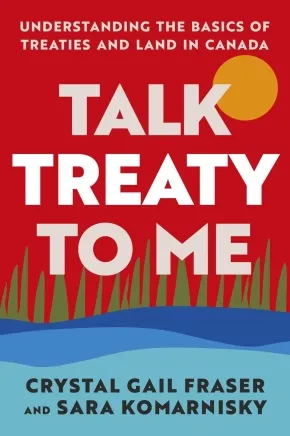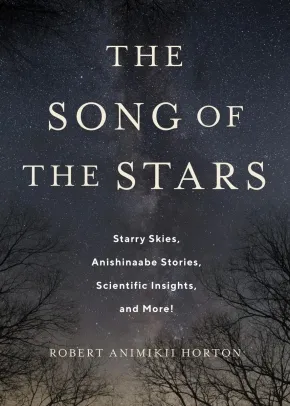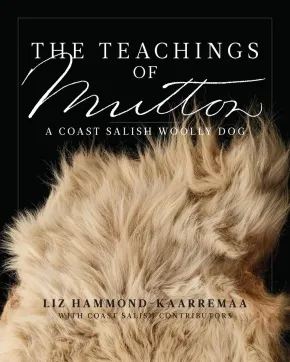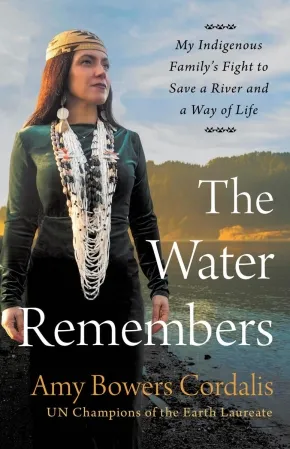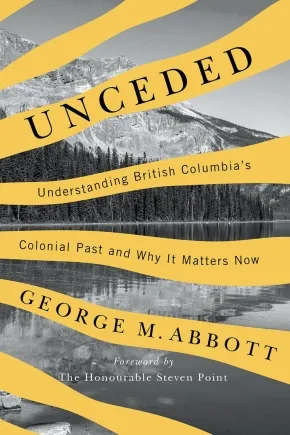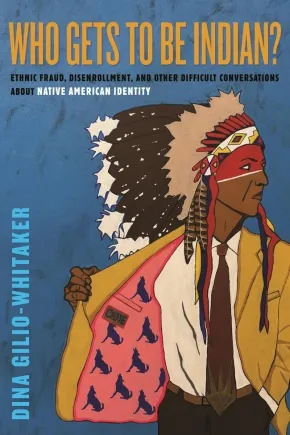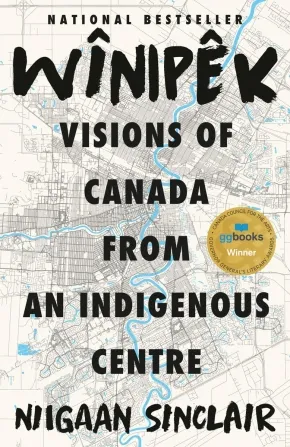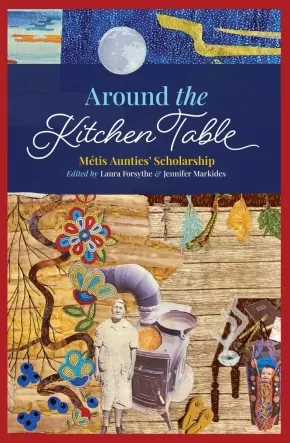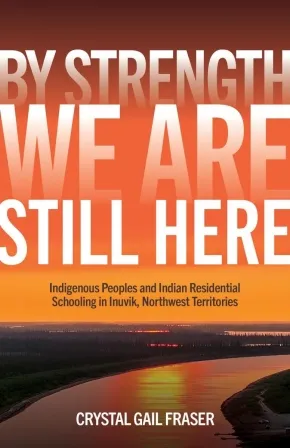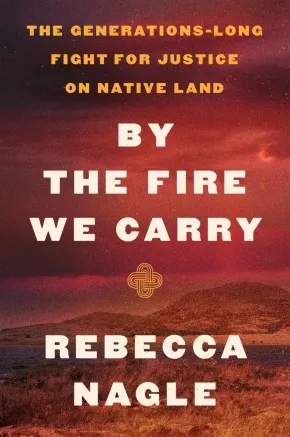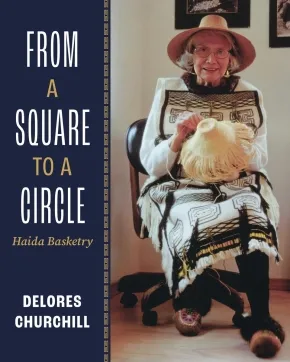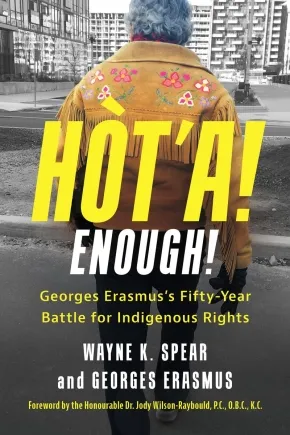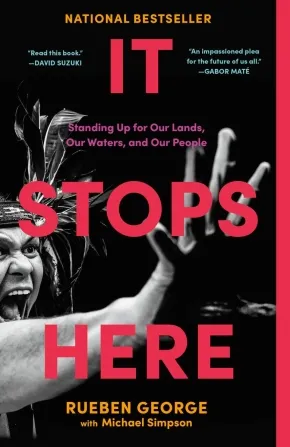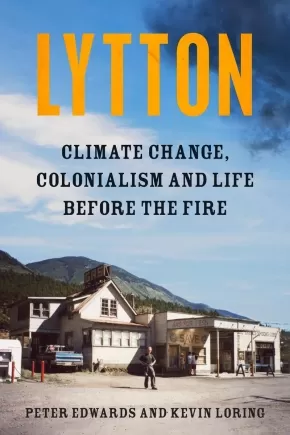
History
16
-
30
of
218 Results;
Sort By
Go To
of 15
Talk Treaty to Me: Understanding the Basics of Treaties and Land in Canada
$22.99
Format:
Paperback
Text Content Territories:
Indigenous Canadian;
Reading Level: N/A
ISBN / Barcode: 9781443471169
Synopsis:
Synopsis:
An essential and easy-to-read guide to treaties, Indigenous sovereignty, and land for all Canadians
Treaties cover much of Canada. Some were established thousands of years ago, with land and animals, and others date back to the time when Europeans first arrived in North America. These agreements make it possible for all of us to live, work, play, and profit on these lands. Additionally, treaties have profoundly shaped the relationship between Indigenous and non-Indigenous people. In Talk Treaty to Me, Crystal Gail Fraser and Sara Komarnisky untangle the complexities of treaties and set a path forward for greater understanding of all our roles, rights, and responsibilities. In this accessible, clear, and concise book, they discuss:
· Treaties among and between Indigenous Peoples
· The history of treaty-making between Indigenous Peoples and Britain, then Canada, from the very beginning to the present day
· Concepts like Métis scrip, modern land claims, Indigenous sovereignty, and unceded territory
· The (dis)honouring of treaties and the role of Canadian settler colonialism
· How the creation of Canadian borders interrupts Indigenous sovereignty and nationhood
· Important insights from gendered and queer perspectives on treaty and land
· The politics of land acknowledgements
· Reconciliation and Land Back movements
And more.
With a quick-reference timeline, maps, and black-and-white photographs throughout, Talk Treaty to Me concludes with a call to action and specific, tangible steps that all of us can take every day to support reconciliation.
Additional Information
256 pages | 5.25" x 8.00" | 40 b&w photos, spot illustrations & maps | Paperback
The Song of the Stars: Starry Skies, Anishinaabe Stories, Scientific Insights, and More!
$29.95
Format:
Hardcover
Text Content Territories:
Indigenous Canadian; First Nations; Anishinaabeg;
Reading Level: N/A
ISBN / Barcode: 9781487564155
Synopsis:
Synopsis:
Since the earliest days of human memory, countless generations have turned their eyes to the skies in wonder, drawing patterns, understanding the stars’ connection to cycles and events, and carrying their stories and teachings forward to subsequent generations.
The Song of the Stars offers a unique journey through the skies, linking us to generations of ancestors who marvelled at the same stars we still gaze upon today. The book brings together Anishinaabe cultural teachings about the cosmos and the Anishinaabemowin language with scientific insights to demonstrate how both viewpoints can help us foster deeper and more meaningful relationships to the Earth and the cosmos. Robert Animikii Horton, Anishinaabemowin educator, proves that this dual perspective can be a source of awe and wonder, inspiring in us a love of both language and science.
Demonstrating how Anishinaabe cultural teachings and scientific insights can complement one another and need not be irreconcilable opposites, The Song of the Stars provides a combination of perspectives that cultivates a deeper understanding of the vast mystery surrounding our place in the universe.
Educator Information
Contents
1. In Awe of the Awe-Inspiring
2. Aki: The Earth
3. Giizis: The Sun
4. Gichi-giizis: The Solar Eclipse
5. Naawakwe: Solar Noon
6. Ma’iingan Omiikana: The Sun’s Ecliptic
7. Aadwaa’amoog: Orion’s Belt
8. Waawaate: The Northern Lights (Aurora Borealis)
9. Jiibay Miikana: The Milky Way
10. Gookomisinaan Dibiki-giizis: The Moon
11. Gaagige-giizhig: The Universe
12. Anang: Star
13. Ojiig Anang: Fisher Star
14. Ojiig: The Big Dipper
15. Gichi-Ogimaa Anang: Vega
16. Gaa-bibooniked: The Wintermaker
17. Maang: The Little Dipper
18. Bagonegiizhig: The Pleiades
19. Moonz: Pegasus
20. Onwaajige Anang: Halley’s Comet
21. Madoodiswan: Corona Borealis
22. Ma’iingan: Canis Major
23. Nanaboozhoo: Scorpius
24. Waaban Anang: The Morning Star
25. Biidaaban, Waaban, Zaagajiwens, & Mooka’am: The Process of Sunrise
26. Mishibizhiw: Leo, Cancer, and Hydra
27. Gaa-madoodood: Hercules
28. Bangishin Anang: Falling Star
29. Binesi: Cygnus
30. Mishiginebig: Draco
31. Ikwe Anang: Venus
32. Directions and More
Additional Information
120 pages | 6.00" x 9.00" | Hardcover
The Teachings of Mutton: A Coast Salish Woolly Dog
$36.95
Format:
Paperback
Text Content Territories:
Indigenous Canadian; First Nations; Salish; Coast Salish; Sto:lo; Katzie First Nation; Squamish; Snuneymuxw ; Musqueam; Indigenous American; Native American; Salish; Coast Salish; Suquamish ; Skokomish (Twana);
Reading Level: N/A
ISBN / Barcode: 9781998526024
Synopsis:
Synopsis:
The pelt of a dog named “Mutton” languished in a drawer at the Smithsonian for 150 years until it was discovered, almost accidentally, by an amateur archivist. This book tells Mutton's story and explores what it can teach us about Coast Salish Woolly Dogs and their cultural significance.
Until now, there has been very little written about the enigmatic Coast Salish Woolly Dog, or sqʷəmey̓ in the Hul'q'umi'num language. According to Indigenous Oral Histories of the Pacific Northwest, this small dog was bred for thousands of years for its woolly fibres, which were woven into traditional blankets, robes and regalia. Although the dogs were carefully protected by Coast Salish peoples, by the 1900s, the Woolly Dog had become so rare it is now considered extinct.
Co-authored with weavers, Knowledge Keepers, and Elders, The Teachings of Mutton interweaves perspectives from Musqueam, Squamish, Stó:lō, Suquamish, Cowichan, Katzie, Snuneymuxw, and Skokomish cultures with narratives of science, post-contact history, and the lasting and devastating impacts of colonization. Binding it all together is Mutton's story—a tale of research, reawakening, and resurgence.
Reviews
“What a compelling story, reflecting a way of life, practical knowledge, artistry and change in the Pacific Northwest! Mutton, the domesticated woolly dog, represents so much more than a museum collection or a source of weaving material. Generations of breeding, learning and sharing, caring and trading are mirrored in the discovery of his pelt in a drawer at the Smithsonian. Liz Hammond-Kaarremaa and her respected Salishan co-authors and Knowledge Keepers have brought Mutton into the present, and in doing so, have given us a new and unique perspective on the complex history of this region and on the meaning of Truth and Reconciliation. The book is clearly and thoughtfully written, and supplemented with excellent illustrations. It is a ‘must read’ for anyone wishing to know more about weaving arts, dog breeds, Indigenous cultures and/or history in northwestern North America.” — Nancy J. Turner, Distinguished Professor Emerita, University of Victoria
“Conscientious and accessible, The Teachings of Mutton weaves a charming and informative history, walking through the discovery of his pelt in a museum drawer to the modern science that reveals the shape of this dog’s life. Highlighting and correcting generations of non-Indigenous misinterpretation, the intertwined histories provided by Salish knowledge keepers reveal the nuanced Indigenous sciences of dog husbandry, spinning, weaving, and the cultural significance of Woolly Dogs while telling a lively story.” — Kathryn Bunn-Marcuse, PhD, curator of Northwest Native art and director of the Bill Holm Center for
Additional Information
264 pages | 8.00" x 10.00"
The Water Remembers: My Indigenous Family's Fight to Save a River and a Way of Life
$40.00
Format:
Hardcover
Text Content Territories:
Indigenous American; Native American; Yurok;
Reading Level: N/A
ISBN / Barcode: 9780316568951
Synopsis:
Synopsis:
A moving multigenerational memoir of Indigenous resistance, environmental justice, and a Yurok family's fight to protect their legacy and the Klamath River.
For the members of a Northern California tribe, salmon are the lifeblood of the people—a vital source of food, income, and cultural identity. When a catastrophic fish kill devastates the river, Amy Bowers Cordalis is propelled into action, reigniting her family's 170-year battle against the U.S. government.
In a moving and engrossing blend of memoir and history, Cordalis propels readers through generations of her family’s struggle, where she learns that the fight for survival is not only about fishing—it’s about protecting a way of life and the right of a species and river to exist. Her great-uncle's landmark Supreme Court case reaffirming her Nation’s rights to land, water, fish, and sovereignty, her great-grandmother’s defiant resistance during the Salmon Wars, and her family's ongoing battles against government overreach shape the deep commitment to justice that drives Cordalis forward.
When the source of the fish kill is revealed, Cordalis steps up as General Counsel for the Yurok Tribe to hold powerful corporate interests accountable, and to spearhead the largest river restoration project in history. The Water Remembers is a testament to the enduring power of Indigenous knowledge, family legacy, and the determination to ensure that future generations remember what it means to live in balance with the earth.
Reviews
"A powerful interweaving of memory, history, and activism, The Water Remembers is a lyrical and uncompromising account of Amy Bowers Cordalis’s fight to protect the Klamath River and the sovereignty of the Yurok Nation. Told through a Yurok storytelling lens, this book traverses ancestral knowledge, ecological devastation, and legal resistance, revealing the sacred bond between people and river. Bowers Cordalis, an attorney and lifelong fisherwoman, writes with the clarity of lived experience and the heart of a riverkeeper. This is a vital work of Indigenous resurgence and environmental justice, brimming with spirit, truth, and unstoppable resolve."—Terese Marie Mailhot, author of Heart Berries
"The Water Remembers is a powerful, poetic testament to Indigenous resilience and reverence for the natural world. Amy Bowers Cordalis weaves history, activism, and sacred connection into a compelling narrative of communities fighting to protect what is most vital. This book is not just a call to action; it’s a song of survival and restoration."—Leah Thomas, environmental educator and author of The Intersectional Environmentalist
Additional Information
288 pages | 6.00" x 9.25" | Hardcover
Unceded: Understanding British Columbia’s Colonial Past and Why It Matters Now
$29.95
Format:
Paperback
Text Content Territories:
Indigenous Canadian; First Nations;
Reading Level: N/A
ISBN / Barcode: 9780774881159
Synopsis:
Synopsis:
In British Columbia, land acknowledgements often refer to “unceded territory.” Yet many people remain uncertain about the history behind these words or their implications for the future of the province.
Unceded reveals the BC government’s history of injustice toward First Nations, providing the context for understanding the province’s current reconciliation efforts, including modern treaty negotiations. Treaty commissioner George M. Abbott combines archival research with a former cabinet minister’s insider perspective on government to chronicle over 150 years of BC-Indigenous relations. Abbott’s account details how early government officials refused to negotiate treaties and instead coerced First Nations onto small and scattered reserves while granting settlers access to vast tracts of land. Despite sustained Indigenous resistance, the situation only worsened as non-Indigenous demands for land and natural resources increased in the decades that followed.
It was only after several Supreme Court decisions affirmed Indigenous land rights that BC sat down at the negotiating table. More recently, the province has taken notable steps toward reconciliation, concluding modern treaties and passing legislation that acknowledges Indigenous rights. As Abbott shows, overcoming the legacy of colonialism is no small task, but achieving justice is worth the effort it takes.
This book is for readers of BC history, those who follow provincial politics, or anyone invested in the future of British Columbia. It is essential reading for elected officials and policy makers and will also appeal to scholars and students of Canadian history, political science, and Indigenous-settler relations.
Reviews
"Unceded is an excellent account of the relationship between First Nation groups and the government of British Columbia. It is well-researched and enriched by interesting insights from George Abbott’s own involvement in more recent developments as a member of the provincial cabinet."— Jim Reynolds, author of Canada and Colonialism and former general counsel to the Musqueam First Nation
"I wish to thank George Abbott for his book about our colonial past. It is only with a better understanding of our history that we can have a better chance of creating a brighter future for First Nations in British Columbia."— From the foreword by the Honourable Steven Point, Grand Chief of the Stó:lō and BC’s first Indigenous Lieutenant-Governor
Additional Information
280 pages | 6.00" x 9.00" | Paperback
Who Gets to Be Indian?: Ethnic Fraud, Disenrollment, and Other Difficult Conversations About Native American Identity
$39.95
Format:
Hardcover
Text Content Territories:
Indigenous American; Native American;
Reading Level: N/A
ISBN / Barcode: 9780807044964
Synopsis:
Synopsis:
An investigation into how Native American identity became a commodity, from cultural appropriation to ethnic fraud to disenrollment
Settler capitalism has been so effective that the very identities of Indigenous people have been usurped, misconstrued, and weaponized. In Who Gets to Be Indian?, scholar and writer Dina Gilio-Whitaker (Colville Confederated Tribes) explores how ethnic fraud and the commodification of Indianness has resulted in mass confusion about what it means to be Indigenous in the United States.
As an entry point to the seemingly intractable problem of ethnic fraud, Gilio-Whitaker critically looks to the film industry, including a case study of Sacheen Littlefeather, who is most known as the Native American woman that rejected an Oscar on behalf of Marlon Brando in 1973—though later revealed, she was not who she said she was. Gilio-Whitaker argues that this pretendian phenomenon originated in Southern California when the United States was forcing assimilation of Indians into white America culturally, but also into its capitalist economic system. With Indianness becoming a marketized commodity in the Hollywood film business, the field became open to anyone who could convincingly adopt an Indian persona.
Deeply researched using socio-historical analysis, Gilio-Whitaker offers insights from her own experiences grappling with identity to provide clarity and help readers understand how the commodification of Indianness have ultimately left many people of legitimate American Indian heritage to be disconnected from their tribes. Personal and compelling, Gilio-Whitaker takes settler capitalism to task and helps us better understand how we got here in order to counteract the abuses of pretendianism and disenrollment.
Reviews
“This incendiary j’accuse isn’t afraid to name names.”—Publishers Weekly, Starred Review
“With clarity and conviction, Dina Gilio-Whitaker exposes what’s at stake for Native people when Indianness becomes a commodity. A sharp, personal, and urgent look at the high cost for actual Native people in a system built to exploit them at every turn.”—Kim TallBear, author of Native American DNA: Tribal Belonging and the False Promise of Genetic Science
“Indigeneity is caught between truth tellers and tricksters. With abiding concern for tribal nationhood, Dina Gilio-Whitaker boldly espouses our truths while confronting the tricksters among us. Indigenous America needs more truth tellers like her and books like this.”—Gabe Galanda, Indigenous rights attorney
“Dina Gilio-Whitaker’s Who Gets to Be Indian? tackles the problem of the commodification of Native identity at a crucial moment in American history. With incisive analysis, Gilio-Whitaker reveals how settler capitalism has distorted and exploited Indigenous identities and exposes the roots of folks pretending to be Native and its harms to Native communities. This book is a call to action and a vital tool for understanding how we can protect Indigenous people. A must-read for anyone seeking to confront the complexities of Native identity, sovereignty, and power in America.”—Liza Black, author of Picturing Indians: Native Americans in Film, 1941–1960
“A fresh and unflinching look into the rise of pretendianism—when it became normalized for Hollywood to grant Native American identities to various grifters. Dina Gilio-Whitaker’s courageous and original analysis will challenge readers, Indigenous or not, to think deeply about the nature of settler colonialism today.”—Darryl Leroux, author of Distorted Descent: White Claims to Indigenous Identity
Additional Information
280 pages | 6.22" x 9.30" | Hardcover
Wînipêk: Visions of Canada from an Indigenous Centre (PB)
$24.00
Format:
Paperback
Text Content Territories:
Indigenous Canadian; First Nations; Anishinaabeg;
Reading Level: N/A
ISBN / Barcode: 9780771099199
Synopsis:
Synopsis:
From ground zero of this country's most important project: reconciliation
Niigaan Sinclair has been called provocative, revolutionary, and one of this country's most influential thinkers on the issues impacting Indigenous cultures, communities, and reconciliation in Canada. In his debut collection of stories, observations, and thoughts about Winnipeg, the place he calls "ground zero" of Canada's future, read about the complex history and contributions of this place alongside the radical solutions to injustice and violence found here, presenting solutions for a country that has forgotten principles of treaty and inclusivity. It is here, in the place where Canada began—where the land, water, people, and animals meet— that a path "from the centre" is happening for all to see.
At a crucial and fragile moment in Canada's long history with Indigenous peoples, one of our most essential writers begins at the centre, capturing a web spanning centuries of community, art, and resistance.
Based on years' worth of columns, Niigaan Sinclair delivers a defining essay collection on the resilience of Indigenous peoples. Here, we meet the creators, leaders, and everyday people preserving the beauty of their heritage one day at a time. But we also meet the ugliest side of colonialism, the Indian Act, and the communities who suffer most from its atrocities.
Sinclair uses the story of Winnipeg to illuminate the reality of Indigenous life all over what is called Canada. This is a book that demands change and celebrates those fighting for it, that reminds us of what must be reconciled and holds accountable those who must do the work. It's a book that reminds us of the power that comes from loving a place, even as that place is violently taken away from you, and the magic of fighting your way back to it.
Awards
- Winner of the 2024 Governor General's Literary Award for Nonfiction.
Additional Information
384 pages | 5.14" x 7.92" | b&w photos throughout | Paperback
Around the Kitchen Table: Métis Aunties' Scholarship
$27.95
Editors:
Format:
Paperback
Text Content Territories:
Indigenous Canadian; Métis;
Reading Level: N/A
ISBN / Barcode: 9781772840735
Synopsis:
Synopsis:
Honouring the scholarship of Métis matriarchs
While surveying the field of Indigenous studies, Laura Forsythe and Jennifer Markides recognized a critical need for not only a Métis-focused volume, but one focused on the contributions of Métis women. To address this need, they brought together work by new and established scholars, artists, storytellers, and community leaders that reflects the diversity of research created by Métis women as it is lived, considered, conceptualized, and re-imagined.
With writing by Emma LaRocque and other pioneers of Métis studies, Around the Kitchen Table looks beyond the patriarchy to document and celebrate the scholarship of Métis women. Focusing on experiences in post-secondary environments, this collection necessarily traverses a range of methodologies. Spanning disciplines of social work, education, history, health care, urban studies, sociology, archaeology, and governance, contributors bring their own stories to explorations of spirituality, material culture, colonialism, land-based education, sexuality, language, and representation. The result is an expansive, heartfelt, and accessible "community of Métis thought," as articulated by Markides.
Reverent and revelatory, this collection centres the strong aunties and grandmothers who have shaped Métis communities, culture, and identities with teachings shared in classrooms, auditoriums, and around the kitchen table.
Reviews
"Inspiring, healing, and future-facing, this long overdue book gives us valuable new insights into the histories and identities of Métis people." — Kim Anderson
"Around the Kitchen Table is an exciting and thought-provoking contribution to the fields of Métis Studies and Indigenous feminism. Reading this book is like sitting down to visit with a strong cup of tea and your favourite aunties. It will inspire readers to think about matriarchy in new and exciting ways, teaching us what it means to be Métis women, good relatives, and innovative scholars." — Cheryl Troupe
Educator Information
Other contributors: Jennifer Adese, Christi Belcourt, Hannah Bouvier, Rita Bouvier, Vicki Bouvier, Robline Davey, Leah Marie Dorion, Marilyn Dumont, Nicki Ferland, Chantal Fiola, Lucy Fowler, Chelsea Gabel, Janice Cindy Gaudet, Emily Haines, Shalene Jobin, Emma LaRocque, Amanda LaVallee, Lynn Lavallee, Avery Letendre, Kirsten Lindquist, Yvonne Poitras Pratt, Angela Rancourt, Lisa Shepherd, Allyson Stevenson, Kisha Supernant, Caroline Tait, Angie Tucker, Dawn Wambold
Table of Contents
Contributors
Foreword by Caroline Tait
The Work of Métis Women: An Introduction – Jennifer Markides
Part One: Identity
1. Brown Names – Marilyn Dumont
2. We Know Ourselves – Lisa Shepherd
3. Kaa-waakohtoochik: The Ones Who Are Related to Each Other – Vicki Bouvier
4. The Roots Always Remain: Reconnecting to Our Communities in the Twenty-First Century – Angie Tucker
5. For the Love of Place―Not Just Any Place: Selected Metis Writings – Emma Larocque
6. Coming Home through Métis Research – Allyson Stevenson
7. Valuing Métis Identity in the Prairies through a “5 R” Lens: Our Digital Storytelling Journey – Chelsea Gabel and Amanda LaVallee
8. Prenatal/Postpartum Ceremonies and Parenting as Michif Self-Determination – Chantal Fiola
9. Medicine Women – Jennifer Adese
10. Lii Michif – Lisa Shepherd
Part Two: Women in the Academy
11. Metis Women as Contributors to the Academy Despite Colonial Patriarchy – Laura Forsythe
12. Connecting to Our Ancestors Through Archaeology: Stories of Three Métis Women Academics – Kisha Supernant, Dawn Wambold, and Emily Haines
13. Métis Women Educating in the Academy – Yvonne Poitras Pratt and Jennifer Markides
14. Structural and Lateral Violence Toward Metis Women in the Academy – Lynn Lavallee
Part Three: Research Methodology
15. Métis Research and Relationality: Auntie Governance, the Visiting Way, and Kitchen Table Reflections – Kirsten Lindquist, Shalene Jobin, Avery Letendre
16. Lii Taab di Faam Michif/Metis Women’s Kitchen Table: Practicing Our Sovereignty – Cindy Gaudet and Angela Rancourt
17. Wahkotowin: An Approach to Indigenous (Land-Based) Education – Nicki Ferland
18. Kaa-natoonamaan taanshi chi-ishi-natoonikeeyaan: My Search for how to Research Things (in a Queer Métis paradigm) – Lucy Fowler
19. Differentiating Métis Feminism – Robline Davey
20. Celebrating the Wisdom of Our Métis Matriarchs: Sewing Our Wellness All Together—Kood Toot Aansamb – Leah Dorion, Janice Cindy Gaudet, Hannah Bouvier
21. if the land could speak – Rita Bouvier
Bibliography
Art – Christi Belcourt
Additional Information
200 pages | 6.00" x 9.00" | index, bibliography | Paperback
By Strength, We Are Still Here: Indigenous Peoples and Indian Residential Schooling in Inuvik, Northwest Territories
$27.95
Format:
Paperback
Text Content Territories:
Indigenous Canadian; First Nations; Dene; Dinjii Zhuh (Gwich'in);
Reading Level: N/A
ISBN / Barcode: 9781772840940
Synopsis:
Synopsis:
The first comprehensive study of Indian residential schools in the North.
In this ground-breaking book, Crystal Gail Fraser draws on Dinjii Zhuh (Gwich'in) concepts of individual and collective strength to illuminate student experiences in northern residential schools, revealing the many ways Indigenous communities resisted the institutionalization of their children.
After 1945, federal bureaucrats and politicians increasingly sought to assimilate Indigenous northerners--who had remained comparatively outside of their control--into broader Canadian society through policies that were designed to destroy Indigenous ways of life. Foremost among these was an aggressive new schooling policy that mandated the construction of Grollier and Stringer Halls: massive residential schools that opened in Inuvik in 1959, eleven years after a special joint committee of the House of Commons and the Senate recommended that all residential schools in Canada be closed.
By Strength, We Are Still Here shares the lived experiences of Indigenous northerners from 1959 until 1982, when the territorial government published a comprehensive plan for educational reform. Led by Survivor testimony, Fraser shows the roles both students and their families played in disrupting state agendas, including questioning and changing the system to protect their cultures and communities.
Centring the expertise of Knowledge Keepers, By Strength, We Are Still Here makes a crucial contribution to Indigenous research methodologies and to understandings of Canadian and Indigenous histories during the second half of the twentieth century.
Reviews
"By Strength, We Are Still Here demonstrates an intergenerational process of love and strength. Fraser's methodology, theory work, and incredibly thorough research are in and of themselves lifegiving, vital, and serve as an example to all other scholars." — Omeasoo Wahpasiw
"By integrating survivor testimony with archives, Fraser points towards the Indigenous resistance revealed in the ellipses and gaps in the colonial record. This is very important work." — Chris Trott
Educator Information
Table of Contents
Glossary
A Note on Region and Terminology
Introduction—By Strength, We Are Still Here.
Chapter One—“If anyone is going to jail for this, I’m taking it”: Our Relatives Speak
- Education in Nanhkak Thak Before the Arrival of Settlers
- Indian Day and Residential Schools
- The Construction of Inuvik
Chapter Two—Calls Grow. “Listen! It’s louder now. From here, from there. Indian voices, Métis voices, demanding attention, demanding equality!"
Chapter Three—“The long process of tearing our family apart”
Chapter Four—“Making us into nice white kids.”
Chapter Five—“The hazards that can result from too permissive or undisciplined sexual behaviour.”
Chapter Six—“To find that inner peace, it was so important for us all.”
Chapter Seven—“These are our children and they are very precious to us.”
Conclusion—“We knew the value of strength.”
Appendix A
Endnotes
Additional Information
320 pages | 6.00" x 9.00" | 69 b&w illustrations, index, bibliography | Paperback
By the Fire We Carry: The Generations-Long Fight for Justice on Native Land
$39.50
Format:
Hardcover
Text Content Territories:
Indigenous American; Native American; Muscogee (Creek); Cherokee; Cherokee Nation (Cherokee Nation of Oklahoma);
Reading Level: N/A
ISBN / Barcode: 9780063112049
Synopsis:
Synopsis:
A powerful work of reportage and American history that braids the story of the forced removal of Native Americans onto treaty lands in the nation’s earliest days, and a small-town murder in the ‘90s that led to a Supreme Court ruling reaffirming Native rights to that land over a century later.
Before 2020, American Indian reservations made up roughly 55 million acres of land in the United States. Nearly 200 million acres are reserved for National Forests—in the emergence of this great nation, our government set aside more land for trees than for Indigenous peoples. That changed on July 9, 2020, when a high-profile Supreme Court case—which originated with a small-town murder two decades earlier—affirmed the reservation of Muscogee Nation. The ruling resulted in the largest restoration of tribal land in U.S. history, merely because the Court chose to follow the law.
In the 1830s Muscogee people were rounded by the US military at gunpoint and forced into exile halfway across the continent. At the time, they were promised this new land would be theirs for as long as the grass grew and the waters ran. But that promise was not kept. When Oklahoma was create on top of their land, the new state claimed their reservation no longer existed. Over a century later, when a Muscogee citizen was sentenced to death for murdering another Muscogee citizen, his defense attorneys argued the murder occurred on the reservation of his tribe, and therefore Oklahoma didn’t have the jurisdiction to execute him. Oklahoma argued that reservation no longer existed. In the summer of 2020, the Supreme Court said: no more; a ruling that would ultimately underpin multiple reservations covering half the land in Oklahoma, including Nagle’s own Cherokee Nation.
Here Rebecca Nagle tells the story of the generations-long fight for tribal land and sovereignty in Eastern Oklahoma. By chronicling both the contemporary legal battle and historic acts of Indigenous resistance, By the Fire We Carry stands as a landmark work of American history. The story it tells exposes both the wrongs that our nation has committed in its long history of greed, corruption and lawlessness, and the Native battle for the right to be here that has shaped our country.
Educator Information
By the Fire We Carry is hard-hitting American history that expands on the nation's story. It tells of the treatment of Native Americans, their removal and displacement, and the genocide committed against them by the US government from their viewpoint.
Additional Information
352 pages | 6.00" x 9.00" | 23 b/w photographs and maps | Hardcover
Curve!: Women Carvers on the Northwest Coast
$45.00
Artists:
Format:
Hardcover
Text Content Territories:
Indigenous Canadian; First Nations;
Reading Level: N/A
ISBN / Barcode: 9781773272542
Synopsis:
Synopsis:
An eighty-year overview of wood and argillite carving by Indigenous women artists on the Northwest Coast.
Though women of the Northwest Coast have long carved poles, canoes, panels, and masks, many of these artists have not become as well known outside their communities as their male counterparts. These artists are cherished within their communities for helping to keep traditional carving practices alive, and for maintaining the dances, songs, and ceremonies that are intertwined with visual art production. This book, and an associated exhibition at the Audain Art Museum, gathers a range of sculptural formats by Indigenous women in order to expand the discourse of carving in the region.
Both the exhibition and publication are co-curated by Dana Claxton, artist, filmmaker and head of the University of British Columbia's Department of Art History, Visual Art and Theory; and Dr. Curtis Collins, the AAM's Director & Chief Curator. Commentaries by Skeena Reece, Claxton, and Marika Swan, and interviews with artists Dale Campbell and Mary Anne Barkhouse are presented alongside more than one hundred artworks from public and private collections across North America, including several newly commissioned pieces.
Featured artists include:
- Ellen Neel (Kwakwaka'wakw, 1916-1966) - Freda Diesing (Haida, 1925-2002) - Doreen Jensen (Gitxsan, 1933-2009) - Susan Point (Musqueam, b. 1952) - Dale Campbell (Tahltan, b. 1954) - Marianne Nicolson (Kwakwaka'wakw, b. 1969) - Arlene Ness (Gitxsan, b. 1970s) - Melanie Russ (Haida, b. 1977) - Marika Swan (Nuu-chah-nulth, b. 1982) - Morgan Asoyuf (Ts'msyen, b. 1984) - Cori Savard (Haida, b. 1985) - Cherish Alexander (Gitwangak, b. 1987) - Stephanie Anderson (Wetsuwet'en, b. 1991) - Veronica Waechter (Gitxsan, b. 1995)
Awards
- Winner of the 2025 Bill Duthie Booksellers' Choice Award
Additional Information
160 pages | 9.20" x 1.10" | 120 colour photos | Hardcover
From a Square to a Circle: Haida Basketry - Delores Churchill's Memories of Learning to Weave
$34.95
Format:
Paperback
Text Content Territories:
Indigenous Canadian; First Nations; Haida;
Reading Level: N/A
ISBN / Barcode: 9781990776854
Synopsis:
Synopsis:
Delores Churchill, Haida weaver, shares the stories of her life, her culture and the importance of passing cultural knowledge from one generation to the next. Told with humility, humour and deep respect, From a Square to a Circle is a testament to the values of her people, a technical guide to her masterful weaving skills and a gift to the reader at every point along her journey.
Part memoir, part how-to guide, this book shines light on Delores’s weaving teachers, including her strong-minded mother Selina (Ilst’ayaa), whose teachings Delores once resisted as a child. The Haida are connected to weaving through their history, which goes back thousands of years ago as shown through discoveries like the 4,000-year-old baskets at south Baranof.
Walk with Delores as she harvests cedar bark for baskets, Selina teaching “by modelling and then leaving the learner to imitate.” Learn the weaving harvest and preparation terminology. Follow the steps of how to prepare cedar bark, harvest spruce roots, and learn natural dye recipes. Photos and diagrams are visual aids that accompany the steps to Haida weaving techniques and instructions.
Having passed her skills on to hundreds of people, believing that “weaving belongs to all of us,” Delores wishes to share the knowledge of basketweaving where beginners and skilled weavers are able to express their distinct selves, just as every coastal Indigenous weaving style is unique. The love for basketweaving displayed in Delores’s writing is sure to make readers yearn to try their own hand at the craft.
Additional Information
256 pages | 8.00" x 10.00" | 240 Photographs | Paperback
Hòt'a! Enough!: Georges Erasmus's Fifty-Year Battle for Indigenous Rights
$28.99
Format:
Paperback
Text Content Territories:
Indigenous Canadian; First Nations; Dene;
Reading Level: N/A
ISBN / Barcode: 9781459752900
Synopsis:
Synopsis:
The political life of Dene leader Georges Erasmus - a radical Native rights crusader widely regarded as one of the most important Indigenous leaders of the past fifty years.
For decades, Georges Erasmus led the fight for Indigenous rights. From the Berger Inquiry to the Canadian constitutional talks to the Oka Crisis, Georges was a significant figure in Canada's political landscape. In the 1990s, he led the Royal Commission on Aboriginal Peoples and afterward was chair and president of the Aboriginal Healing Foundation, around the time that Canada's residential school system became an ongoing frontpage story.
Georges's five-decade battle for Indigenous rights took him around the world and saw him sitting across the table from prime ministers and premiers. In the 1980s, when Georges was the National Chief of the Assembly of First Nations, he was referred to as the "Thirteenth Premier." This book tells the personal story of his life as a leading Indigenous figure, taking the reader inside some of Canada's biggest crises and challenges.
Awards
- 2025 Indigenous Voices Awards - Prose in English Award
Additional Information
320 pages | 6.00" x 9.00" | 57 b&w illustrations | Paperback
It Stops Here: Standing Up for Our Lands, Our Waters, and Our People (PB)
$24.00
Format:
Paperback
Text Content Territories:
Indigenous Canadian; First Nations; Salish; Coast Salish; Tsleil-Waututh;
ISBN / Barcode: 9780735242821
Synopsis:
Synopsis:
A personal account of one man’s confrontation with colonization that illuminates the philosophy and values of a First Nation on the front lines of the fight against an extractive industry, colonial government, and threats to the life-giving Salish Sea.
It Stops Here is the profound story of the spiritual, cultural, and political resurgence of a nation taking action to reclaim their lands, waters, law, and food systems in the face of colonization. In deeply moving testimony, it recounts the intergenerational struggle of the Tsleil-Waututh Nation to overcome colonial harms and the powerful stance they have taken alongside allies and other Indigenous nations across Turtle Island against the development of the Trans Mountain Pipeline—a fossil fuel megaproject on their unceded territories.
In a firsthand account of the resurgence told by Rueben George, one of the most prominent leaders of the widespread opposition to the Trans Mountain Pipeline expansion, It Stops Here reveals extraordinary insights and revelations from someone who has devoted more than a decade of his life to fighting the project. Rueben shares stories about his family’s deep ancestral connections to their unceded lands and waters, which are today more commonly known as Vancouver, British Columbia and the Burrard Inlet. He discloses how, following the systematic cultural genocide enacted by the colonial state, key leaders of his community, such as his grandfather, Chief Dan George, always taught the younger generations to be proud of who they were and to remember the importance of their connection to the inlet.
Part memoir, part call to action, It Stops Here is a compelling appeal to prioritize the sacred over oil and extractive industries, while insisting that settler society honour Indigenous law and jurisdiction over unceded territories rather than exploiting lands and reducing them to their natural resources.
Additional Information
288 pages | 5.13" x 7.98" | 31 b+w images throughout | Paperback
Lytton: Climate Change, Colonialism and Life Before the Fire
$36.00
Format:
Hardcover
Text Content Territories:
Indigenous Canadian; First Nations; Salish; Interior Salish; Nlaka'pamux (Thompson);
Reading Level: N/A
ISBN / Barcode: 9781039006157
Synopsis:
Synopsis:
From bestselling true-crime author Peter Edwards and Governor General's Award-winning playwright Kevin Loring, two sons of Lytton, BC, the town that burned to the ground in 2021, comes a meditation on hometown―when hometown is gone.
Before it made global headlines as the small town that burned down during a record-breaking heat wave in June 2021, while briefly the hottest place on Earth, Lytton, British Columbia, had a curious past. Named for the author of the infamous line, “It was a dark and stormy night,” Lytton was also where Peter Edwards, organized-crime journalist and author of seventeen non-fiction books, spent his childhood. Although only about 500 people lived in Lytton, Peter liked to joke that he was only the second-best writer to come from his tiny hometown. His grade-school classmate’s nephew Kevin Loring, Nlaka’pamux from Lytton First Nation, had grown up to be a Governor General's Award-winning playwright.
The Nlaka’pamux called Lytton “The Centre of the World,” a view Buddhists would share in the late twentieth century, as they set up a temple just outside town. In modern times, many outsiders would seek shelter there, often people who just didn’t fit anywhere else and were hoping for a little anonymity in the mountains. You’ll meet a whole cast of them in this book.
A gold rush in 1858 saw conflict with a wave of Californians come to a head with the Canyon War at the junction of the mighty Fraser and Thompson rivers, one that would have changed the map of what was soon to become Canada had the locals lost. The Nlaka’pamux lost over thirty lives in that conflict, as did the American gold seekers. A century later, Lytton hadn’t changed much. It was always a place where the troubles of the world seemed to land, even if very few people knew where it was.
This book is the story of Lytton, told from a shared perspective, of an Indigenous playwright and the journalist son of a settler doctor who quietly but sternly pushed back against the divisions that existed between populations (Dr. Edwards gladly took a lot of salmon as payment for his services back in the 1960s). Portrayed with all the warmth, humour and sincerity of small-town life, the colourful little town that burned to the ground could be every town’s warning if we don’t take seriously what this unique place has to teach us.
Additional Information
376 pages | 6.00" x 9.00" | Hardcover
Sort By
Go To
of 15

